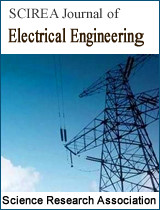Application on PCB Defect Detection System using multi-Axis Arm Integrated with Optics and Deep Learning Technology
DOI: 10.54647/dee470301 113 Downloads 255015 Views
Author(s)
Abstract
As technology became more advanced, a lot of products have included electric circuits in order to increase their capabilities. The demand for circuit boards rises naturally alongside with the demand for these products said above. Many manufacturers have started to incorporate automation systems into their production lines, which has increased productivity in various industries and helped them to cope with manpower shortages. As circuit boards become an important aspect in almost everything, the demand for higher yields and production quality increases, and line automation, including artificial intelligence such as robotic arms and machine learning, becomes more common in the manufacturing industry. In the circuit board manufacturing industry, more and more new products are being introduced and the demand for circuit boards is increasing, so better quality control and production efficiency are required. The industry has been using automatic optical inspection machines for about 20 years to identify defects in circuit boards, but currently relies on manual repair processes, which are inefficient and prone to errors. The system can be integrated with the robot arm, using artificial intelligence and computer vision to classify images and control the arm to perform repair to improve the efficiency of the board manufacturing process and reduce the cost of repairing boards, which can maximize the production line and increase the profitability of the company.
Keywords
Printed Circuit Board, Image Classification, Automated Optical Inspection, Deep Learning
Cite this paper
Jiun-Hung Lin, Kenny Gunawan Tjakrawinata, You-Lin Jian, Zong-Ying Wun,
Application on PCB Defect Detection System using multi-Axis Arm Integrated with Optics and Deep Learning Technology
, SCIREA Journal of Electrical Engineering.
Volume 8, Issue 1, February 2023 | PP. 8-18.
10.54647/dee470301
References
| [ 1 ] | Bradley D.A., Seward D.W., “Robots and Automated Systems for the Civil and Construction Industries”, Civil Engineering Systems, 7, Issue 3, 135-139, 1990 |
| [ 2 ] | Isaac Kofi Nti, Adebayo Felix Adekoya, Benjamin Asubam Weyori, Owusu Nyarko-Boateng, “Applications of Artificial Intelligence in Engineering and Manufacturing: A Systematic Review”, Journal of Intelligent Manufacturing, 33, 1581–1601, 2022 |
| [ 3 ] | Rahul Rai, Manoj Kumar Tiwari, Dmitry Ivanov, Alexandre Dolgui, “Machine Learning in Manufacturing and Industry 4.0 Applications”, International Journal of Production Research, 59(16), 4773-4778, 2021 |
| [ 4 ] | Rao R.M., Arora M.K., Advanced Image Processing Techniques for Remotely Sensed Hyperspectral Data, Springer, Berlin, Heidelberg, 2004 |
| [ 5 ] | Rafael C. Gonzalez; Richard E. Woods, Digital Image Processing, Prentice Hall, 2002 |
| [ 6 ] | Kim I, Jung J.Y., DeLuca T.F., Nelson T.H., Wall D.P., “Cloud Computing for Comparative Genomics with Windows Azure Platform”, Evolutionary Bioinformatics, 8, 527-534, 2012 |
| [ 7 ] | Lu Xingguo, Liu Ming, “Optimal Design and Tuning of PID-Type Interval Type-2 Fuzzy Logic Controllers for Delta Parallel Robots”, International Journal of Advanced Robotic Systems, 13, 2016 |
| [ 8 ] | Pedro M. A. Vitoriano, Tito. G. Amaral, Octávio Páscoa Dias, “Automatic Optical Inspection for Surface Mounting Devices with IPC-A-610D Compliance”, Proceedings of the 2011 International Conference on Power Engineering, Energy and Electrical Drives, 2011 |

